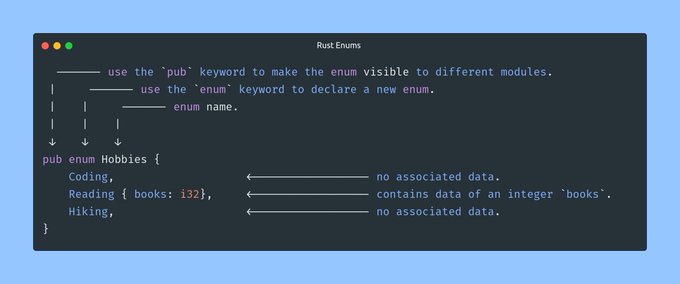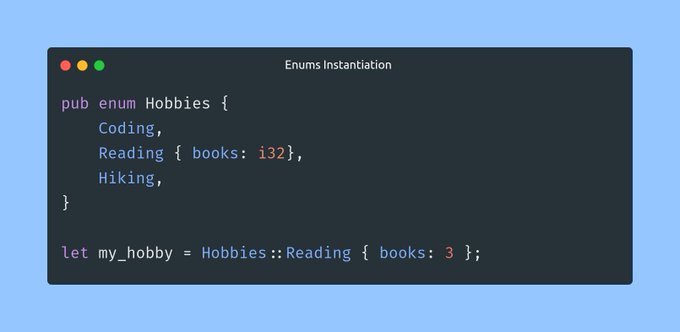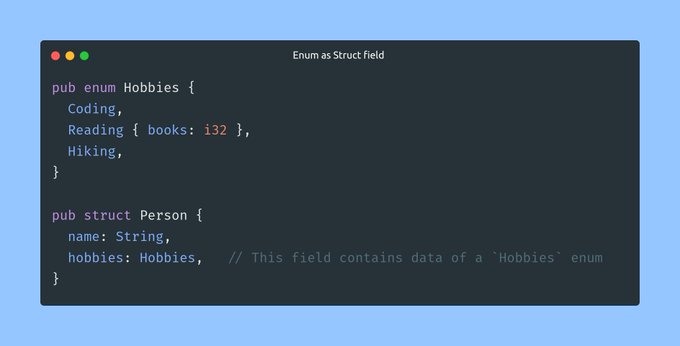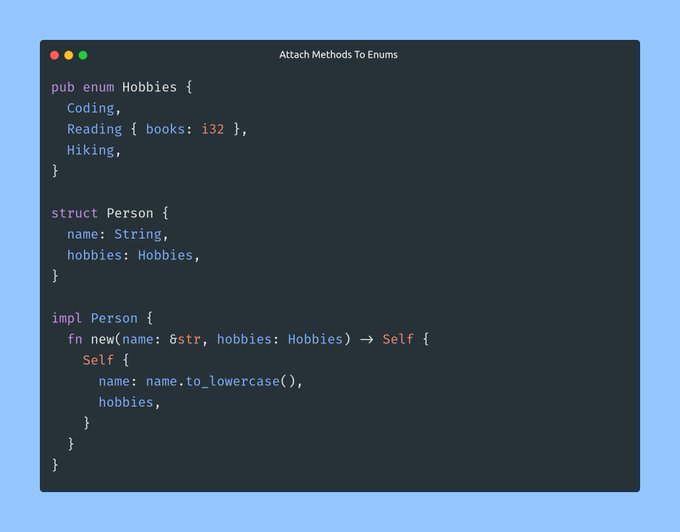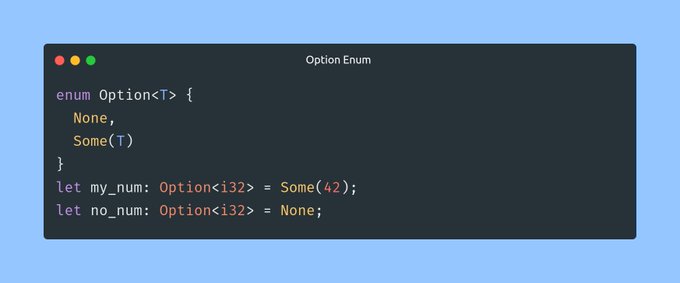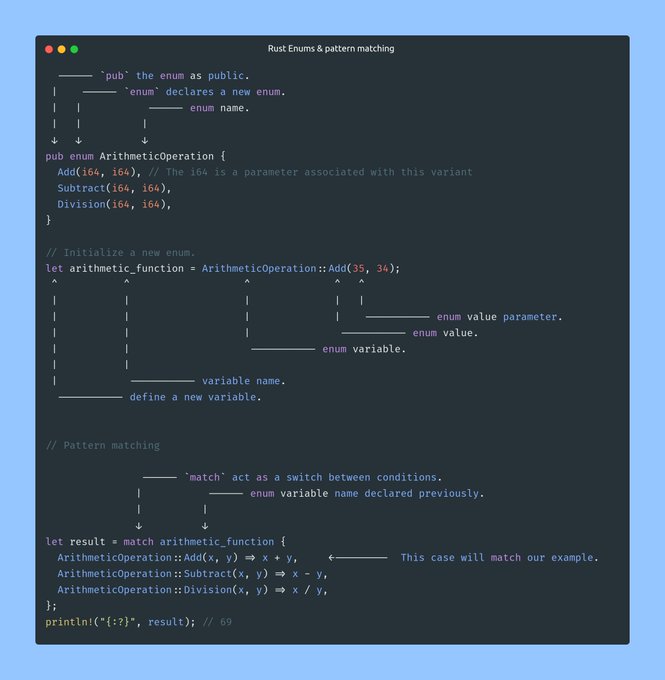🧵 Enums
-
Enums Syntax
- Rust’s enums let you define a type that represents a set of predefined values.
- Declare an enumeration with the
enumkeyword. - Fields within an enum are separated by commas.
- Like Structs, Enum definition doesn’t end with a semicolon.
pub enum Hobbies { Coding, <------------------ no associated data. Reading { books: i32}, <------------------ contains data of an integer `books`. Hiking, <------------------ no associated data. } -
Initialize an Enum
- Use the
::syntax to initialize an enum.
pub enum Hobbies { Coding, Reading { books: i32}, Hiking, } let my_hobby = Hobbies::Reading { books: 3 }; - Use the
-
Enums inside Structs
- Add a new field to a struct that has a previously defined enum type.
pub enum Hobbies { Coding, Reading { books: i32}, Hiking, } pub struct Person { name: String, hobbies: Hobbies, // This field contains data of a `Hobbies` enum } -
Attach Methods
- Enums can have methods implemented on them as well.
- Use the
implkeyword followed by the name of the enum. - The
newmethod is a constructor for the enum.
pub enum Hobbies { Coding, Reading { books: i32 }, Hiking, } struct Person { name: String, hobbies: Hobbies, } impl Person { fn new(name: &str, hobbies: Hobbies) -> Self { Self { name: name.to_lowercase(), hobbies, } } } -
Option Enum
Option<T>type is used where a value could be something or nothing.- It has two variants:
None, which carries no value.Some(v), which has the value v of type T.
enum Option<T> { None, Some(T) } let my_num: Option<i32> = Some(42); let no_num: Option<i32> = None; -
Pattern Matching
- Pattern matching can be used to process enums and their associated data.
- It can also be used to destructure an enum and extract its data.
pub enum Operation { Add(i32, i32), Subtract(i32, i32), } let my_op = Operation::Add(3, 4); let result = match my_op { Operation::Add(a, b) => a + b, Operation::Subtract(a, b) => a - b, }; assert_eq!(result, 7);
You can refer to this twitter thread for more info.
